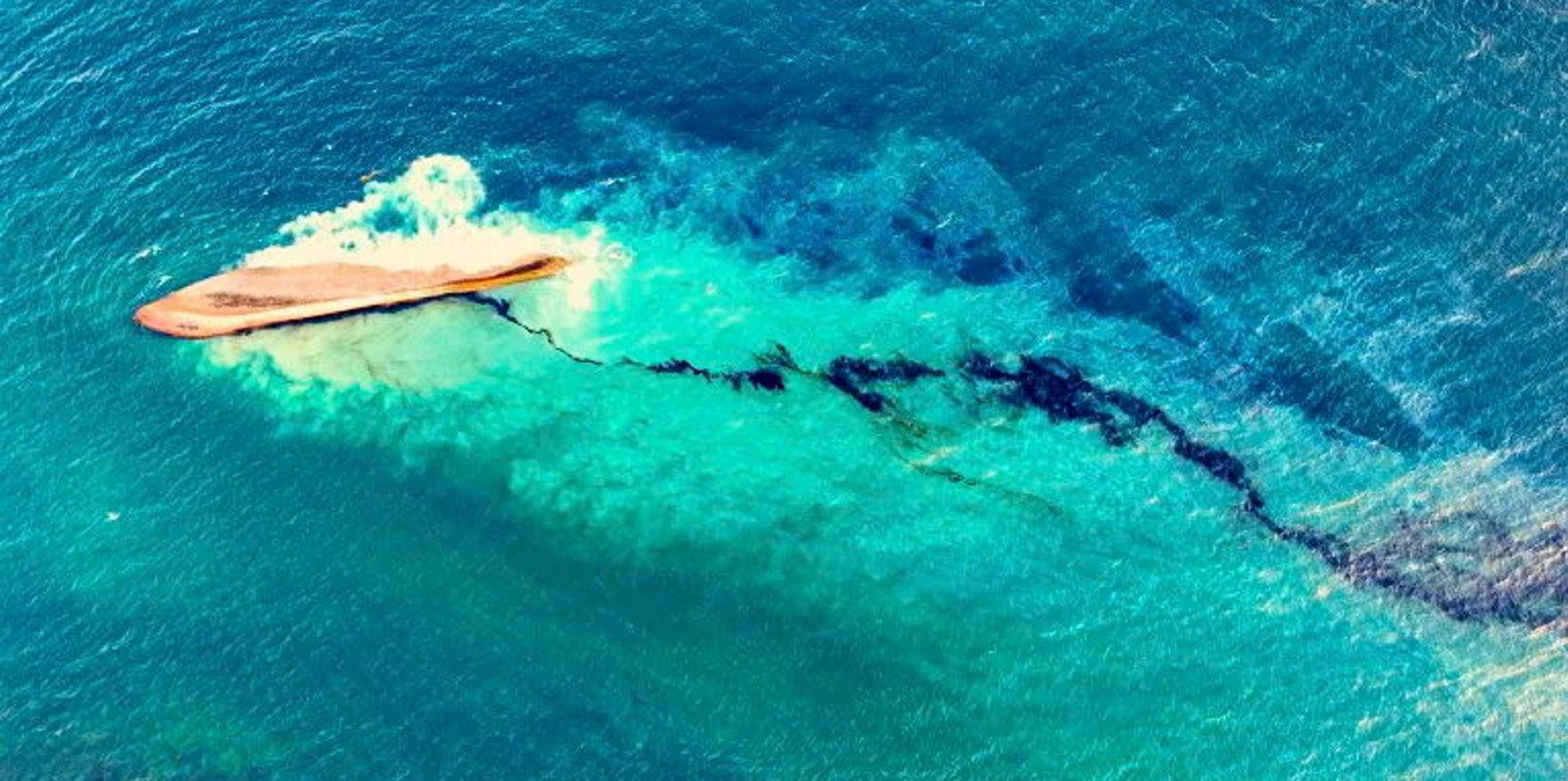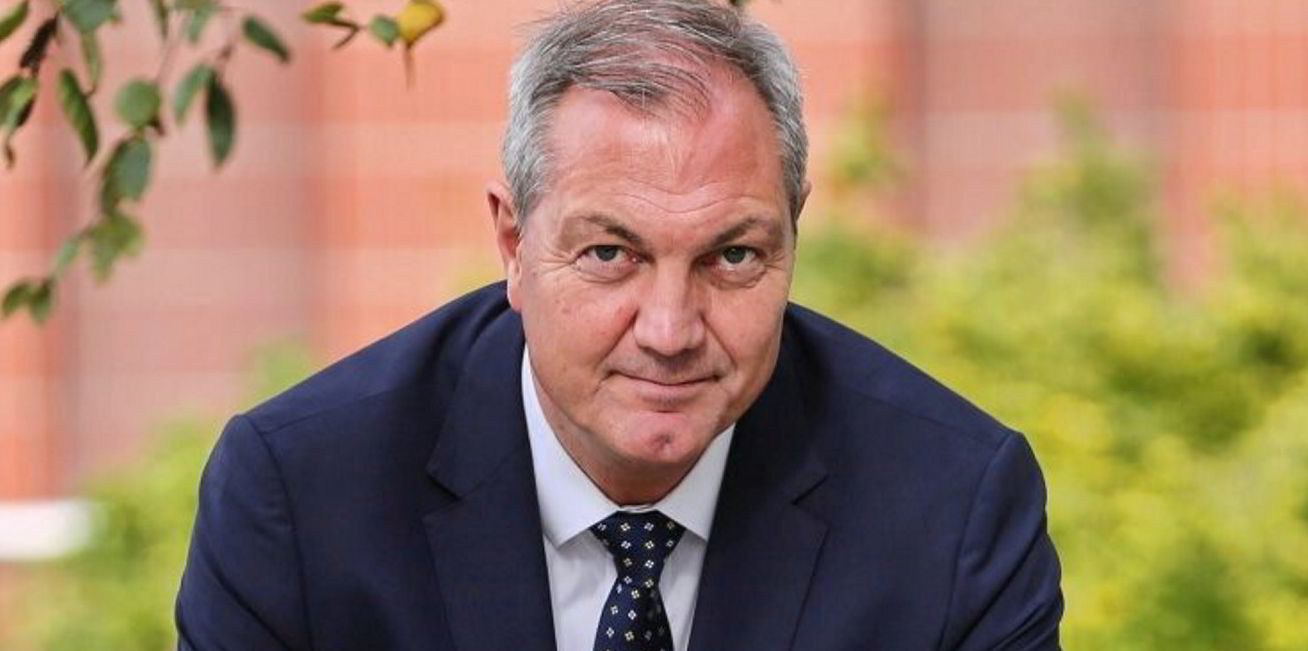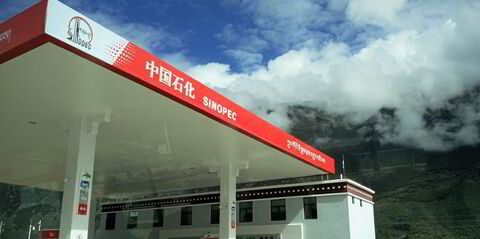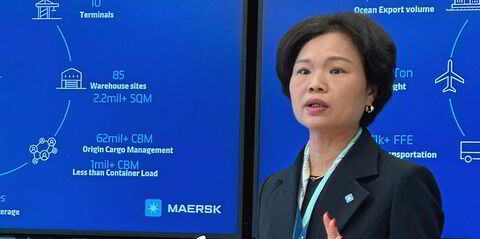Flag states that fail to properly police their fleets for adequate insurance should be named, shamed and ushered to the fringes of the shipping world amid growing fears about the environmental cost of a shadow tanker oil spill, the head of an international compensation fund has told TradeWinds.
Gaute Sivertsen, the director of the International Oil Pollution Compensation Funds, said concerns about a growing number of vessels hauling sanctioned oil without adequate insurance had effectively turned his organisation into the “underwriter for the dark fleet”.
The 121-nation membership picks up the tab for clean-up operations after a shipowner and its insurers have fulfilled their liabilities.
But increasing numbers of ships sailing without full insurance means that coastal states and the IOPC Funds will be left to shoulder the cost of multi-year anti-pollution control efforts.
Rules governing the IOPC Funds mean that it will step in to compensate third-party losses and clean-up costs on the coastlines of member states even if the vessel is carrying sanctioned cargo and is not properly insured.
Sanctions imposed on countries such as Venezuela, Russia and Iran have seen a growing number of tankers quit Western-linked service providers and move to new flag states and insurance providers outside of the orbit of the G7 group of nations to avoid blacklisting.
They include about 800 tankers, which have left the International Group of P&I Clubs, which covers 87% of the world’s oceangoing tonnage and is part of a pool that provides up to $3.1bn of protection for a single incident.
Sivertsen said his main concern was the under-insurance of ships outside the International Group.
They will not secure the business of oil majors and, therefore, fail to complete the most rigorous vessel checks demanded by top-tier charterers.
“That means they are of a lesser standard,” said Sivertsen, a Norwegian at the fund’s offices within the headquarters of the International Maritime Organization.
“In addition, they often conduct unsafe operations such as ship-to-ship transfers in open sea.
“So, this increases the risk profile of the tanker fleet. And if we then have an incident and it turns out they don’t have insurance, the [IOPC Funds] member state will still be covered.
“So in a way, we are underwriting the dark fleet.”
Near misses
There has been no major incident involving a shadow, or dark fleet, tanker since Russia invaded Ukraine in February 2022 and was hit by waves of Western sanctions. But there have been a series of near misses.
They included two incidents in the Danish Straits. One involved a collision with a ballasting shadow fleet tanker, the 116,000-dwt Andromeda Star (built 2009), in March.
The 53,000-dwt Canis Power (built 2005) suffered engine problems in May last year and veered across shipping lanes before anchoring for repairs.
Sivertsen cited the case of the 96,800-dwt Pablo (built 1997), which suffered an explosion and fire in May 2023 in Malaysian waters but was not carrying an oil cargo.
It had been repeatedly de-flagged following claims of involvement in trading sanctioned Iranian crude in the months before the blast.
The IOPC Funds membership last month approved payments for the clean-up of a major spill off Trinidad and Tobago after a decrepit barge, the Gulfstream, with unknown ownership and insurance, spilled its cargo of Venezuelan oil while being towed by a tug.
Before its voyage, the unregistered and uninspected barge had been beached for seven months to stop it from sinking and had to be pumped out. It was leaking oil even as it left the port.
The tug has disappeared and ownership and insurance details for the barge remain unclear.

“I hope that’s an outlier,” said Sivertsen, who took on the job in January 2022. “The chances of anything going wrong with a tanker carrying sanctioned oil and perhaps with bad insurance are quite significant as you can see.”
He said that tanker safety had improved over the past 30 years because of tighter IMO rules and enforcement. “Now we’re in a situation where some of these rules are not enforced any more,” he said.
“I just hope that more pressure will be put on those flag states … I hope the IMO will put this higher on the agenda. It’s a real issue.”
He said it would be “extremely difficult” for his organisation to secure damages from a flag state that failed to live up to its obligations and left the IOPC Funds picking up the costs.
“I see it more in a political context … if the IOPC Funds suffers a loss because a flag state did not ensure that their ship had insurance, you could see political pressure build against that state.
“We can’t close them [flag state administrations] down, but I think maybe if there’s a flag state that completely fails to fulfil its obligations, they should be named and shamed and all ships carrying that flag would be a red flag in any port.”
Read more
- Who will pick up the tab for a shadow fleet oil spill? It won’t be Russia
- Philippine tanker spill claims bill tops $50m
- Comment: Sanctioned ‘dark fleet’ starts to figure in Allianz casualty count
- IOPC Funds will help meet Philippine tanker oil spill claims
- Flag and port states urged to act to prevent ‘dark fleet’ pollution disaster




